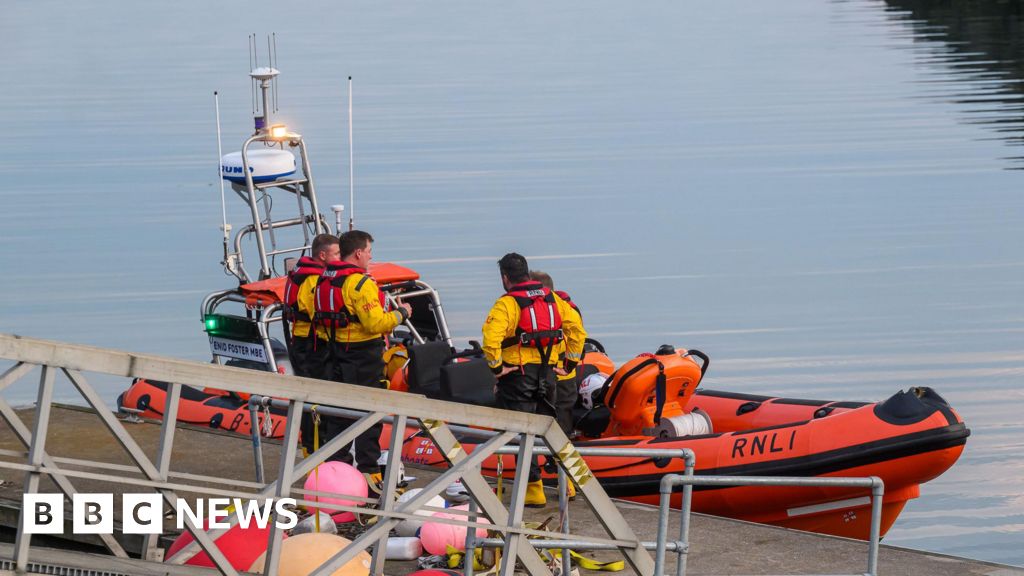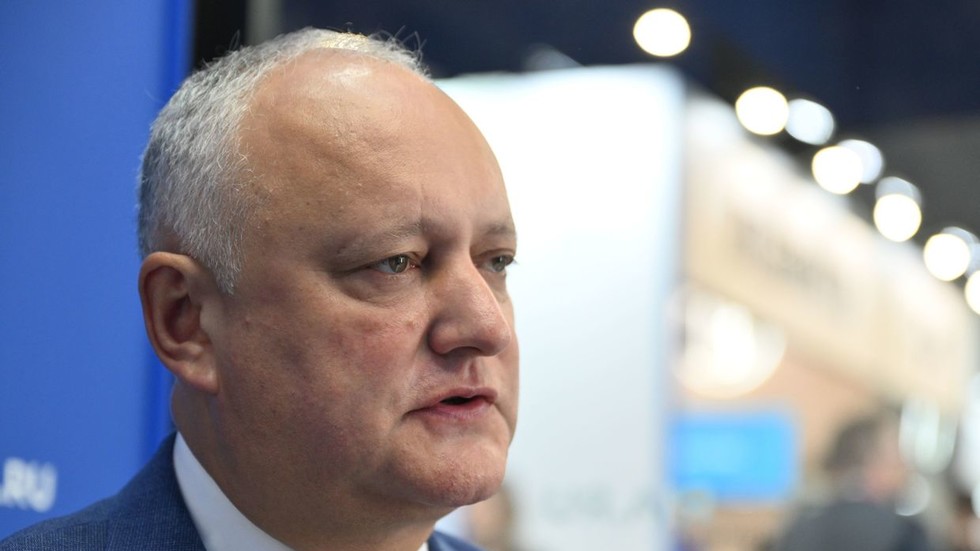ADVERTISEMENT
"We believe that the minimum thing Europeans can do is to very explicitly condemn Israel and stop their support for Israel," Iran's ambassador and permanent representative to the United Nations in Geneva Ali Bahraini said in an interview for Euronews.
Bahraini said Europe's reluctance to condemn Israel's aggression and its inability to keep the nuclear deal (JCPOA) afloat have all contributed to the current intensifying hostilities between Iran and Israel, now in their seventh day.
"The impunity which has been given to Israel is something which encourages that entity to continue committing new crimes. And this impunity is because of inaction by Europeans. By the United States and the Security Council," Bahraini explained.
"We request and we ask Europe to push Israel to stop the aggression. Europe should play its responsibility to put an end to the impunity that Israel is enjoying. Europe should stop helping or assisting Israel financially, militarily, or by intelligence. And Europe should play a strong role in explaining for the United States and for Israel that Iranian nuclear technology is not something which they can destroy."
Bahraini said that what he called Europe’s "failures" would be presented to the foreign ministers of France, Germany and the United Kingdom – known collectively as the E3 – at talks in Geneva on Friday.
They are meeting in Switzerland to discuss Iran’s nuclear programme, which is at the heart of the current conflict with Israel.
Iran was previously subject to an international nuclear deal known as the Joint Comprehensive Plan of Action (JCPOA), which saw the country receive sanctions relief in exchange for strict limits on its nuclear activities.
During his first term in office, President Donald Trump withdrew the US from the pact in 2018, slamming it as "the worst deal ever negotiated" and slapping new sanctions on Iran.
Since then, the other signatories to the deal have scrambled to keep Iran in compliance, but Tehran considers the deal void and has continued with uranium enrichment, which at current levels sits at 60%.
That's still technically below the weapons-grade levels of 90%, but still far above the 3.67% permitted under the JCPOA.
Iran maintains that its nuclear programme is peaceful and purely for civilian purposes. Israel, on the other hand, says Tehran is working towards the construction of a nuclear weapon, which could be used against Israel.
Bahraini told Euronews that there is still a window for diplomacy to reach a new nuclear deal, but first, the fighting with Israel has to stop.
"For our people and for our country, now the first priority is to stop aggression, to stop attacks," he told Euronews.
"I personally cannot imagine there would be a strong probability at the moment for a kind of diplomatic idea or initiative because for us it would be inappropriate if we think or talk at the moment about anything rather than stopping the aggressors," Bahraini pointed out.
Parallel to the daily exchanges of missile and drone strikes that have taken place since last Friday, the conflict has also led to an escalating war of words, particularly between Trump and some senior figures in Iran.
When asked by reporters on Wednesday whether he intended to bring the US military into the conflict to strike Iran alongside Israel, Trump said, "I may do it, I may not do it. Nobody knows what I'm going to do."
While Trump appeared to avoid a direct commitment to military action, Israel's Prime Minister Benjamin Netanyahu interpreted his comments as a show of support and, in a television address later on Wednesday evening, thanked Trump for "standing by us".
Into that mix came Iran's mission to the United Nations, which said no officials from the country would "grovel at the gates of the White House" to reach a nuclear deal with the United States.
Bahraini said it was clear to him that "the United States has been complicit to what Israel is doing now."
Strikes on the United States
He said Iran would respond very firmly if the United States "crosses the red lines" and said that strikes on the country had not been ruled out.
"Our military forces are monitoring the situation. It is their domain to decide how to react," he said.
"What can I tell you for sure is that our military forces have a strong dominance on the situation, they have a very precise assessment and calculation about the movements of the United States. And they know where the United States should be attacked," Bahraini warned.
Bahraini also said that Iran has not requested any international support and is protecting itself independently.
Iran funds a string of militant groups around the region, including Hamas in Gaza, Hezbollah in Lebanon, and the Houthis in Yemen, and while they all have different aims and objectives, often the ideology that binds them is their anti-Israel position.
When fighting with Israel broke out last week, there were concerns that Iran might demand these groups step up and fight alongside it, in return for the funding and training they have received from Tehran.
So far, that has not happened.
"At this stage, we are confident that we can defeat Israel independently and we can stop aggression without needing any request of help by anybody," Bahraini explained.
"I personally believe that Israel is not an entity with which somebody can negotiate. The thing we have to do is to stop aggression, and we have to show Israel that it is not able to cross the red lines against Iran."
"Israel is accustomed to committing crimes, and we think that we have stop it somewhere. We have to tell Israel that there is a red line," he concluded.

 4 hours ago
2
4 hours ago
2









